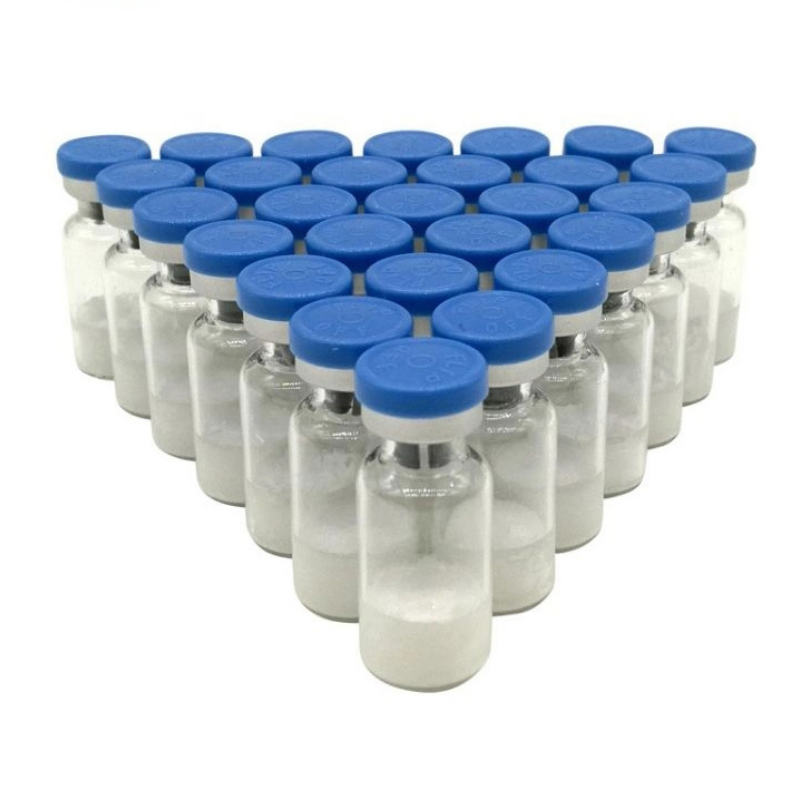Cell subjournal: a key protein regulating cardiac development
-
Last Update: 2015-09-10
-
Source: Internet
-
Author: User
Search more information of high quality chemicals, good prices and reliable suppliers, visit
www.echemi.com
Heart muscle can be said to be the most diligent muscle in our body Without its constant and regular beating, our organs will lack nutrients to maintain life However, how does the heart grow from a thin layer of cells in the embryo into this powerful and important organ? Still largely unknown Recently, researchers at the center for genomic regulation (CRG) in Barcelona, Spain, found a unique gene switch that seems to guide stem cells to develop into specialized heart muscles The findings, published recently in the journal Cell stem cell, could help reveal the underlying causes of heart defects in patients with congenital heart disease They may also lead to new ways of controlling stem cells in the laboratory, making them grow into cell repair kits for patients with damaged hearts The study was led by Luciano Di Croce, a CRG epigenetic geneticist and research professor at the Institute of higher studies in Catalonia (icrea), Spain The team found a protein called mel18, which is responsible for regulating part of the cellular mechanism of the silencing of DNA in developing cells This protein is usually active in a group of embryonic stem cells in the mesoderm, which can develop into all muscle and red blood cells in the body By acting on a member of the Polycomb protein complex family, a protein complex called PRC1, the structure of chromosomes can be changed, and it can silence some genes This seems to be a pathway for developing cells to differentiate into specialized cardiomyocytes However, the researchers found that mel18 has another unexpected function of turning on specific genes when cardiomyocytes in the mesoderm begin to develop At the same time, this dual function seems to cause the growth of healthy heart tissue According to Dr Di Croce, "mel18 is highly expressed in embryonic stem cells In the process of differentiation, its expression decreased, but its homologous protein was up-regulated Interestingly, this happens in a cell specific way, which means that each protein in the family appears to be responsible for the differentiation of a set of cell types For example, mel18 is high in cardiomyocytes, but it is not fully expressed in neuronal precursor cells Although we have not explored this in depth, one possibility is that the wrong expression of mel18 in cardiomyocytes is the cause of heart defects or diseases " The team conducted a series of experiments on stem cells cultured in the laboratory, together with gene sequencing technology, and found that mel18 can bind key genes and regulate their transcription They also found that mesodermal cells with reduced mel18 protein levels were also blocked from developing viable cardiomyocytes, and rarely beat According to Dr Lulu í s Morey, the first author of this paper, this shows that the lack of mel18 may be related to some heart problems with cardiac muscular dysplasia However, previous studies in mice have shown that animals with mutations in the mel18 coding gene appear to develop normal hearts, but die shortly after birth Dr Di Croce said: "this needs further study This may be that some of mel18's homologous proteins can compensate for mel18 deficiency in early development " With mel18, it is expected to make it easier for us to use induced pluripotent stem cells (or iPS cells) to cultivate functional heart cells in the laboratory By restoring adult cells to a more embryonic like state, the use of embryos can be avoided, so they can be regarded as a rich source of cells for research or clinical treatment of patients "In the future, this may provide us with a useful way to convert human iPS cells into cardiomyocytes," said Dr Morey, now an assistant professor at the University of Miami
This article is an English version of an article which is originally in the Chinese language on echemi.com and is provided for information purposes only.
This website makes no representation or warranty of any kind, either expressed or implied, as to the accuracy, completeness ownership or reliability of
the article or any translations thereof. If you have any concerns or complaints relating to the article, please send an email, providing a detailed
description of the concern or complaint, to
service@echemi.com. A staff member will contact you within 5 working days. Once verified, infringing content
will be removed immediately.







